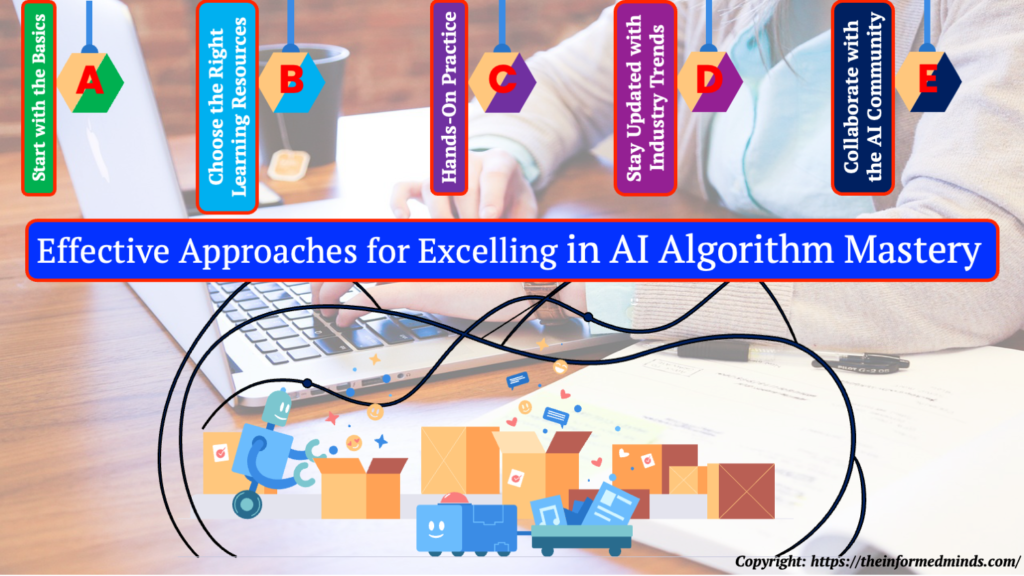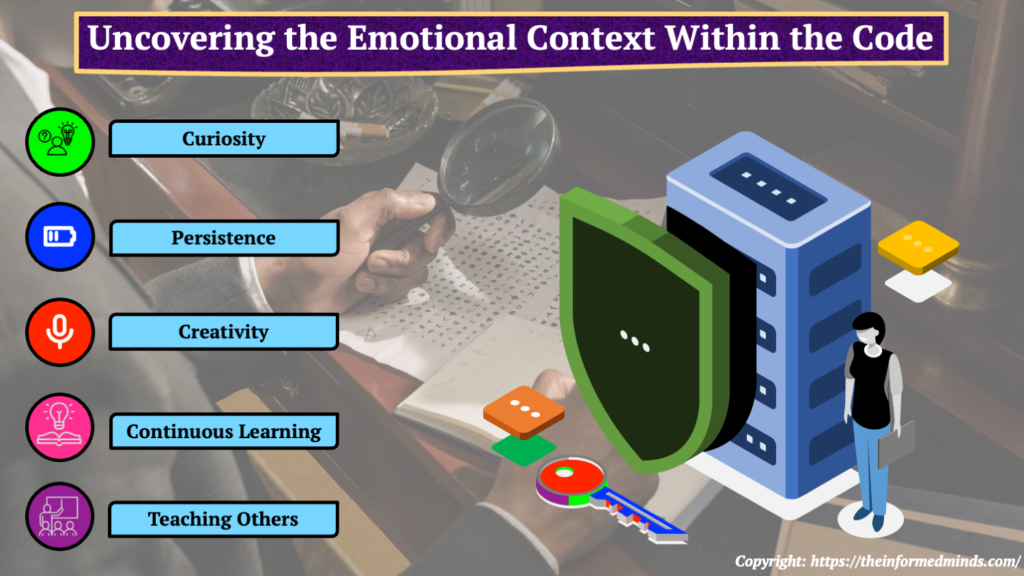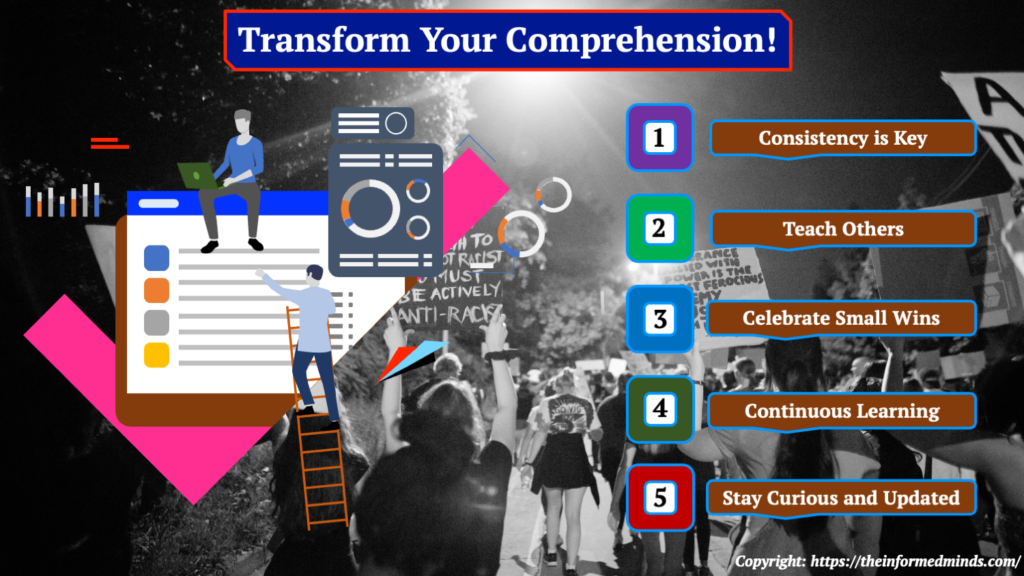To Share is to Show You Care!
Welcome to the exciting realm of artificial intelligence! As technology advances, understanding AI algorithms becomes crucial. In this blog post, we’ll unveil the best strategies to make mastering AI complexities a breeze, helping you decode the emotion behind the code and revolutionize your understanding.
1. Key Strategies to Master AI Algorithms

1.1 Start with the Basics
- Foundational Concepts: Begin by grasping the foundational concepts of AI, including understanding what machine learning is, the role of neural networks, and the significance of algorithms in AI systems.
- Terminology: Familiarize yourself with key AI terminology, such as supervised learning, unsupervised learning, and reinforcement learning, to establish a solid understanding of the fundamental principles.
1.2 Choose the Right Learning Resources
- Online Courses: Opt for well-structured online courses from reputable platforms like Coursera, edX, or Khan Academy. These courses often provide comprehensive coverage of AI topics and are taught by experts in the field.
- Textbooks and Resources: Explore recommended textbooks and resources suggested by experienced professionals. These materials can serve as valuable references to deepen your theoretical knowledge.
1.3 Hands-On Practice
- Application of Knowledge: Put your theoretical knowledge into practice by working on hands-on projects. Platforms like Kaggle offer real-world datasets and problem-solving challenges that allow you to apply AI concepts in a practical setting.
- Project-Based Learning: Engage in project-based learning to gain practical experience and enhance your skills. This hands-on approach is crucial for reinforcing theoretical concepts.
1.4 Stay Updated with Industry Trends
- Subscription to Newsletters and Blogs: Stay informed about the latest developments by subscribing to AI-focused newsletters and blogs. This ensures you are aware of cutting-edge technologies, emerging trends, and industry news.
- Conference Attendance: Attend AI conferences and webinars to gain insights from leading experts, discover new research findings, and connect with professionals in the field.
1.5 Collaborate with the AI Community
- Forums and Discussion Groups: Join online forums and discussion groups dedicated to AI. Engage with the community, ask questions, and participate in discussions to learn from others and share your experiences.
- Feedback and Networking: Seek feedback on your projects from the community. Networking with fellow learners and professionals can provide valuable insights, different perspectives, and potential collaboration opportunities.
2. Decoding the Emotion Behind the Code
Understanding the emotional aspect of AI algorithms is essential for a holistic grasp of the subject. Here’s how.

2.1 Curiosity
- Exploring the ‘Why’: Cultivate a curious mindset that goes beyond the ‘what’ and ‘how’ of AI algorithms. Ask yourself why certain algorithms are designed the way they are, understanding the underlying principles and motivations.
- Embracing Challenges: View challenges as opportunities to learn and grow. Embrace the complexity of AI algorithms with a sense of curiosity, and don’t be afraid to delve into unfamiliar territory.
2.2 Persistence
- Resilience in Learning: AI can be intricate, and you may encounter challenges along the way. Develop resilience and persistence in your learning journey. If you find a concept difficult, don’t shy away—persistently revisit it until you gain a solid understanding.
- Breaking Down Complexity: Break down complex AI problems into smaller, more manageable tasks. Tackling each component individually allows you to focus on understanding one aspect at a time, making the overall learning process less overwhelming.
2.3 Creativity
- Innovative Problem-Solving: Approach problem-solving with creativity. AI often involves finding innovative solutions to complex issues. Experiment with different approaches, explore unconventional ideas, and be open to creative problem-solving methods.
- Thinking Outside the Box: Challenge yourself to think outside the box. Consider alternative solutions and approaches, and don’t be afraid to experiment with new ideas. Creativity is a key driver in pushing the boundaries of AI.
2.4 Continuous Learning
- Consistency in Study: Set a consistent study schedule to reinforce your learning. Consistency is key in retaining information and building a strong foundation in AI.
- Regular Revisitation: Regularly revisit previous concepts to solidify your understanding. As your knowledge grows, revisiting foundational concepts helps reinforce the basics and provides a more comprehensive understanding of AI.
2.5 Teaching Others
- Sharing Knowledge: Share your knowledge with peers or through blogging. Teaching others reinforces your own understanding of AI concepts and encourages a deeper level of comprehension.
- Interactive Learning: Engage in discussions with others who may have questions or need guidance. Explaining complex concepts to others enhances your communication skills and solidifies your grasp on AI topics.
2.6 Celebrating Small Wins
- Acknowledging Progress: AI can be challenging, and progress may not always be linear. Celebrate your achievements along the way, no matter how small. Recognizing your progress boosts motivation and keeps you engaged in the learning process.
- Positive Reinforcement: Positive reinforcement helps create a positive learning environment. When faced with difficulties, reflecting on and celebrating the progress you’ve made can provide the motivation needed to overcome challenges.
3. Revolutionize Your Understanding
Now that you’ve armed yourself with strategies and tapped into the emotional side of AI, it’s time to revolutionize your understanding. Remember:

3.1 Consistency is Key
- Establish a Study Routine: Set a consistent study schedule to maintain momentum in your AI learning journey. Consistency ensures that you are regularly engaging with the material, reinforcing your understanding, and gradually building expertise.
- Scheduled Review Sessions: Incorporate regular review sessions into your routine. This helps solidify previously learned concepts and ensures that the knowledge remains fresh in your mind.
3.2 Teach Others
- Sharing Knowledge: Actively engage in teaching others about AI concepts. This could involve mentoring peers, creating educational content, or even contributing to online forums. Teaching forces you to articulate your understanding, reinforcing your knowledge.
- Interactive Learning: Engage in discussions with others who may have questions or seek guidance. Answering queries and explaining complex topics to others not only reinforces your own understanding but also provides valuable insights into different perspectives and approaches.
3.3 Celebrate Small Wins
- Acknowledge Progress: In the challenging field of AI, it’s essential to celebrate your achievements, no matter how small. Recognize the completion of a challenging project, the understanding of a complex algorithm, or any milestone in your learning journey.
- Motivational Boost: Acknowledging progress provides a motivational boost. It helps build confidence, encourages a positive mindset, and reinforces the idea that mastering AI is an ongoing process of growth and improvement.
3.4 Continuous Learning
- Set Learning Goals: Define clear learning goals for yourself, both short-term and long-term. Setting specific objectives gives direction to your studies and helps measure progress.
- Explore Advanced Topics: As you become more comfortable with foundational concepts, challenge yourself by exploring advanced topics within AI. This could involve diving into specific algorithms, advanced machine learning techniques, or cutting-edge research papers.
3.5 Stay Curious and Updated
- Curiosity as a Driver: Cultivate a curious mindset that extends beyond the classroom or online courses. Stay curious about the latest advancements, emerging technologies, and real-world applications of AI.
- Follow Industry Developments: Regularly read AI-related literature, follow industry blogs, and stay updated on research papers. Being aware of the latest trends ensures that your understanding of AI remains relevant and aligned with industry practices.
Conclusion
Congratulations! You’ve embarked on a journey to master AI algorithms. By following these strategies, decoding the emotion behind the code, and staying committed, you’ll find yourself confidently navigating the intricate world of artificial intelligence. Embrace the challenges, stay curious, and enjoy the continuous learning process. 🌐🤖
Frequently Asked Questions
Q1: Why is it so hard to understand AI?
A: Understanding AI can be challenging due to its complex nature, involving intricate algorithms, diverse subfields, and constant advancements. The interdisciplinary nature of AI, combining computer science, mathematics, and domain-specific knowledge, contributes to its perceived difficulty.
Q2: What are the difficulties in artificial intelligence?
A: Difficulties in AI include handling uncertainty, data quality issues, ethical considerations, and the constant need for adaptation to evolving technologies. AI systems also face challenges in reasoning, problem-solving, and replicating human-like cognition.
Q3: Why is it difficult to define artificial intelligence?
A: Defining AI is challenging because it encompasses a broad range of technologies and approaches. The evolving nature of AI, with continuous advancements and the emergence of new subfields, makes it hard to encapsulate in a single, static definition.
Q4: Why are machine learning algorithms complicated?
A: Machine learning algorithms can be complicated due to their need to handle vast amounts of data, intricate mathematical models, and the necessity for parameter tuning. The complexity increases with advanced algorithms like deep learning, requiring a deep understanding of neural networks.
Q5: Is AI tough to learn?
A: AI can be challenging to learn due to its multidisciplinary nature, requiring knowledge in programming, statistics, and domain-specific concepts. However, with dedication, resources, and a systematic approach, mastering AI is achievable.
Q6: What is the easiest way to explain AI?
A: AI can be explained as a field of computer science focused on creating systems that can perform tasks requiring human intelligence. It involves learning, reasoning, problem-solving, perception, and language understanding, aiming to mimic or augment human capabilities.
Q7: What is the biggest problem in AI?
A: One of the biggest problems in AI is the ethical and societal impact. Issues such as bias in algorithms, job displacement, privacy concerns, and the responsible use of AI raise complex challenges that require careful consideration and regulation.
Q8: What is the most common problem in AI?
A: One common problem in AI is the lack of robustness in machine learning models. Models may fail when faced with data they haven’t encountered before, highlighting the challenge of ensuring AI systems generalize well to diverse scenarios.
Q9: What is the biggest challenge in AI?
A: The biggest challenge in AI is achieving artificial general intelligence (AGI), where machines can perform any intellectual task that a human can. Developing systems with human-like cognitive abilities involves solving numerous complex problems in various AI subfields.
Q10: How do you explain AI to someone?
A: AI can be explained as the development of computer systems that can perform tasks requiring human intelligence. It involves creating algorithms and models that enable machines to learn, reason, solve problems, understand natural language, and make decisions.
Q11: What problem can AI not solve?
A: AI faces challenges in solving problems that require human qualities such as creativity, emotional understanding, and moral judgment. Tasks heavily reliant on intuition, common sense, and subjective interpretation remain difficult for AI systems.
Q12: What are the 4 types of AI?
A: The four types of AI are reactive machines, limited memory, theory of mind, and self-aware AI. Reactive machines operate based on predefined rules, limited memory systems learn from historical data, theory of mind involves understanding human emotions, and self-aware AI possesses consciousness and self-awareness.
Q13: What is the salary of an artificial intelligence engineer?
A: The salary of an artificial intelligence engineer varies based on factors like experience, location, and the employing organization. On average, AI engineers can earn a competitive salary, often surpassing other IT roles due to the specialized skills and demand in the field.
Q14: What is the hardest part of machine learning?
A: One of the hardest parts of machine learning is feature engineering, where selecting and transforming relevant features from raw data significantly impacts model performance. Additionally, interpreting complex models and ensuring they generalize well to new data pose challenges.
Q15: What is the most common issue while using machine learning algorithms?
A: A common issue in using machine learning algorithms is overfitting, where a model learns the training data too well, including noise, leading to poor performance on new, unseen data. Regularization techniques and proper model evaluation help address this challenge.
The Informed Minds
I'm Vijay Kumar, a consultant with 20+ years of experience specializing in Home, Lifestyle, and Technology. From DIY and Home Improvement to Interior Design and Personal Finance, I've worked with diverse clients, offering tailored solutions to their needs. Through this blog, I share my expertise, providing valuable insights and practical advice for free. Together, let's make our homes better and embrace the latest in lifestyle and technology for a brighter future.

